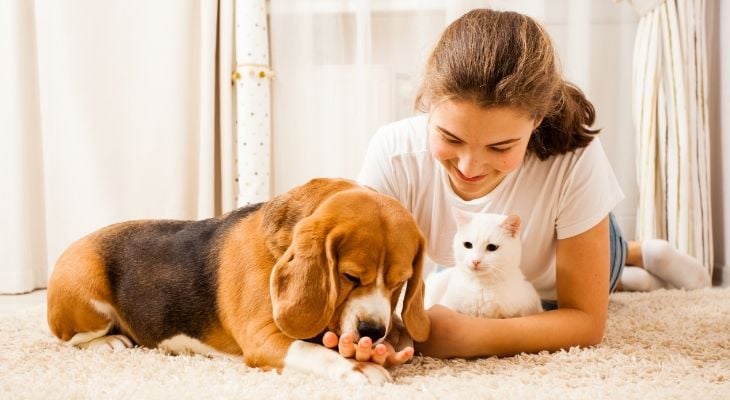These care tips could help protect your senior horse's health.
Read moreCall Us Today!

Prepare your house for your pet's arrival. A special place should be designated for it to eat, sleep, and eliminate. Obtain any necessary accessories (eg, collar, leash, ID tag, crate, cage, aquarium and dishes) before you bring your pet home. For most pets, you will need to pet-proof your home just as you would child-proof your home to avoid accidents. Harmful cleansers, plants, electrical cords, and breakable objects should be kept out of reach. Open windows should be screened.
Roaming pets are prime candidates for fights with other animals, traffic accidents, and communicable diseases from other animals. Their life span can be expected to be considerably shorter as a result.
Most pets are strictly indoor pets and are perfectly content, as long as they have access to food and fresh water at all times. AVMA strongly recommends that for a healthier, happier pet you consider keeping your pets indoors only. If your pet must go outside, make sure you know where it is at all times, that the pet is old enough to manage on its own, that it is identified in some fashion (microchip ID or breakaway collar and tag), current on vaccinations, and not outdoors in extremely cold, hot, or inclement weather.
If you don't want your pet in certain areas of the house, start training it immediately to avoid those areas. When choosing where your pet will sleep, keep in mind some pets are nocturnal animals and will be active at night. Placing soft bedding materials in secluded corners will help your pet to feel at home.
-
May Newsletter: Care Tips for Your Senior Horse
Category: Newsletter Library
-
April Newsletter: The Benefits of Equine Therapy
Category: Newsletter Library
-
March Newsletter: How Your Veterinarian Can Treat Corns in Horses
Category: Newsletter Library
Wondering what you can do about your horse's painful corns? Your equine veterinarian can help.
Read more -
February Newsletter: When Should Horses Be Vaccinated?
Category: Newsletter Library
-
January Newsletter: How Often Should Horses Have Wellness Exams?
Category: Newsletter Library
-
December Newsletter: The Importance of Eye Exams for Horses
Category: Newsletter Library
-
November Newsletter: What are the Advantages for Clicker Training Horses?
Category: Newsletter Library
-
October Newsletter: How a Coggins Test Can Detect Equine Infectious Anemia (EIA)
Category: Newsletter Library
Concerned about equine infectious anemia? A Coggins Test can help you ensure your horse is healthy.
Read more
Contact Us
We look forward to hearing from you!
Location
Find us on the map
Centennial Equine Sports Medicine
7411 W U.S. Hwy 160
Pagosa Springs, CO 81147, US
Office Hours
8:00 am - 5:00 pm
8:00 am - 5:00 pm
8:00 am - 5:00 pm
8:00 am - 5:00 pm
8:00 am - 5:00 pm
Closed
Closed

